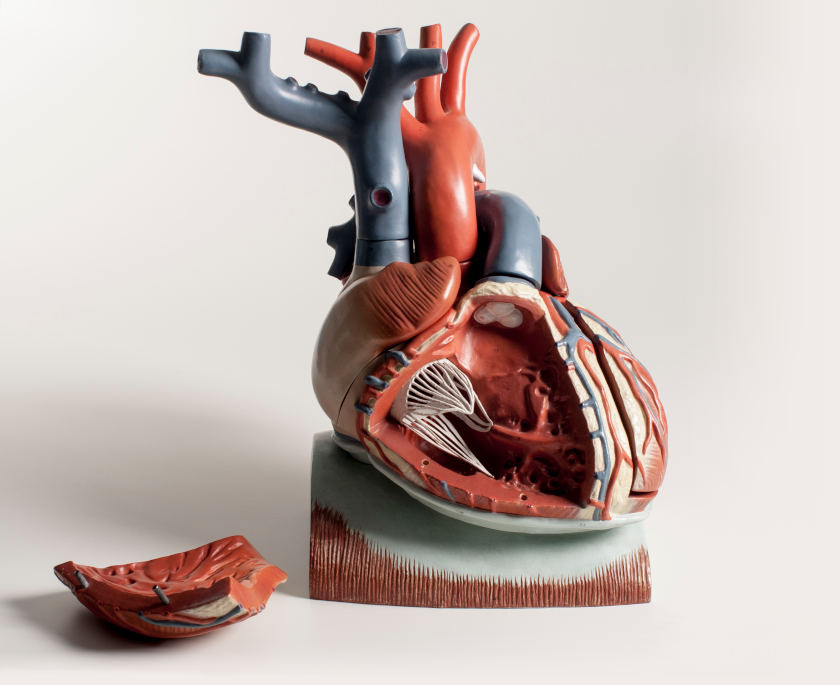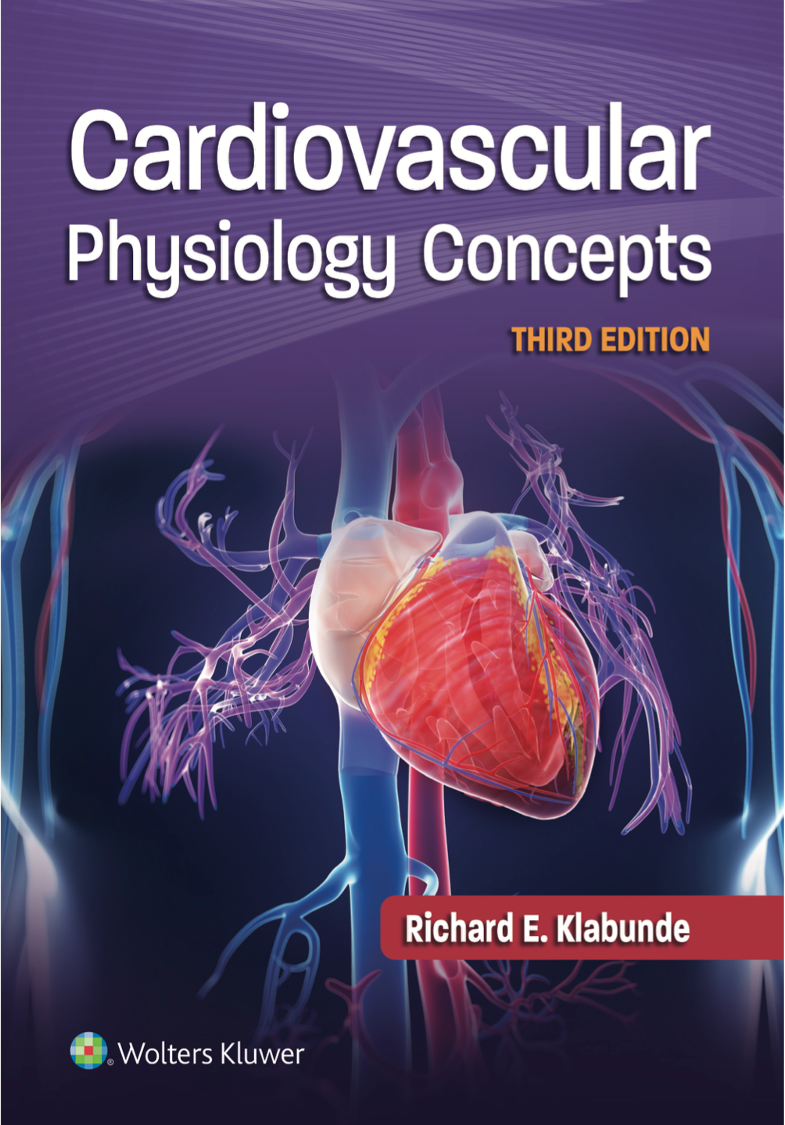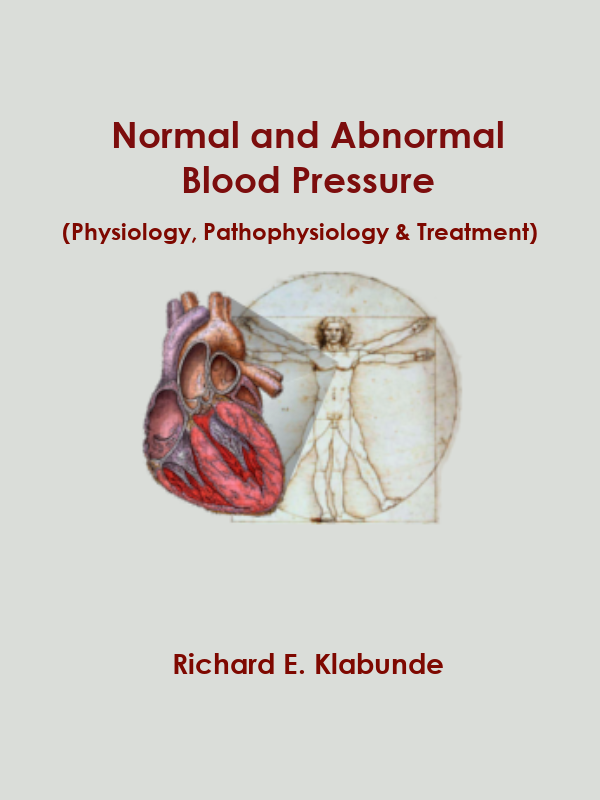Myocardial Infarction
Myocardial infarction, or "heart attack," is irreversible damage to myocardial tissues caused by prolonged ischemia/hypoxia and by reperfusion-induced injury. The damaged tissue is initially composed of a necrotic core surrounded by a marginal (or border) zone that can recover or become irreversibly damaged. The border zone may be an important site of arrhythmogenesis. Collateral blood flow is an important determinant of infarct size and whether the border zone becomes irreversibly damaged.
Infarcted tissue does not contribute to tension generation during systole, and therefore can alter ventricular systolic and diastolic function and disrupt electrical activity. Long-term consequences include ventricular remodeling (e.g., development of compensatory hypertrophy), ventricular failure, arrhythmias, and sudden death.
Click here for additional information on the treatment of myocardial infarction.
Revised 01/30/2023

 Cardiovascular Physiology Concepts, 3rd edition textbook, Published by Wolters Kluwer (2021)
Cardiovascular Physiology Concepts, 3rd edition textbook, Published by Wolters Kluwer (2021) Normal and Abnormal Blood Pressure, published by Richard E. Klabunde (2013)
Normal and Abnormal Blood Pressure, published by Richard E. Klabunde (2013)